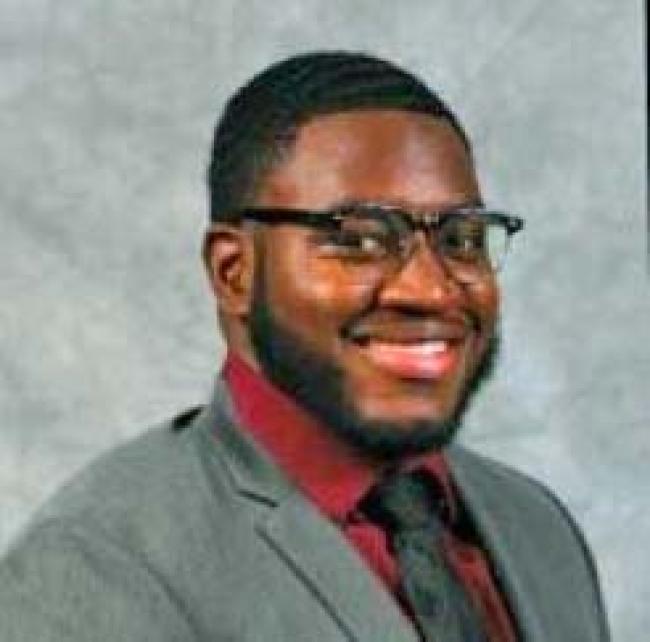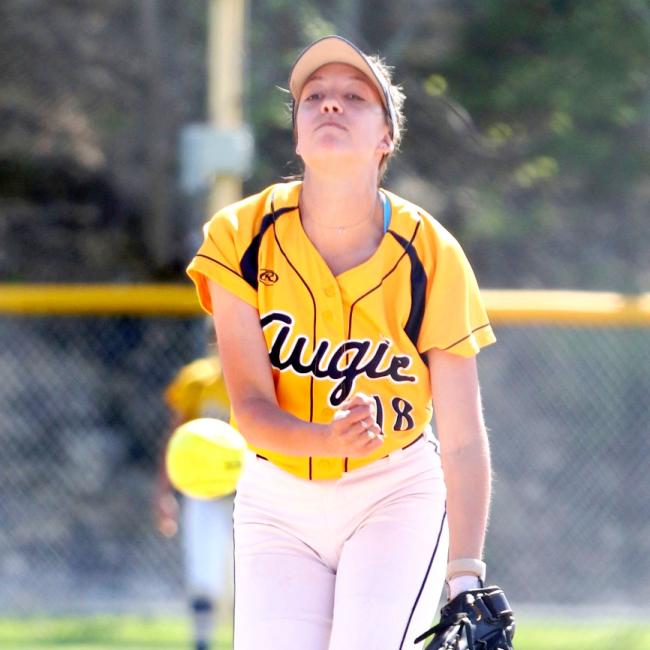Claire Weeks '22 said understanding more about her “transferrable skills” helped her think more deeply and intellectually about herself.
Employers, grad schools on the lookout for student-athletes
Augustana’s career coaches offer workshops for varsity teams
Student-athletes are in the lead when it comes to finding a job or being accepted to graduate school. Their experience balancing academics and athletics yields sought-after skills.

“Being in high-pressure environments that demand swift decisions through critical thinking — athletes consistently experience this,” said Ammuniki Wood, CORE career coach. “Also, most jobs require employees to work without constant micromanagement. Employers and grad schools have found that student-athletes excel in both of these areas."
Another reason student-athletes get a second look is because they have learned how to deal with feedback, Wood said. Their ability to handle criticism and process/implement feedback leads to more effective relationships and outcomes. Plus, they have shown they are dedicated and follow through on commitments.
To help student-athletes communicate their experiences so they stand out to employers and graduate schools, CORE career coaches offer workshops for Augustana’s varsity teams.
Student-athletes’ transferrable skills include: planning and organizational, critical thinking, leadership and management, creative, communication, interpersonal.
Viking softball players Claire Weeks ’22 and Shaye Arwood ’22 recently attended a workshop led by Wood.
Weeks, a data analytics major, said understanding more about her “transferrable skills” helped her think more deeply and intellectually about herself. Now, when interviewing for jobs, she says she can illustrate her range of skills by drawing on personal experience rather giving “cookie-cutter and average” answers.
For example, playing collegiate softball has taught Weeks the importance of time management and working as a team and staying positive and focused when things aren't going well.
“Playing a sport has also given me a voice and opportunities every day to become more of a leader,” she said. “Being on a team of 30 girls, it’s difficult to have your voice heard sometimes, so playing on this team for four years has helped me gain confidence in myself, and truly know who I am as I graduate college."

Shaye Arwood '22
Teammate Shaye Arwood, a biochemistry major with a public health minor, is applying to graduate schools. She agrees with Weeks that time management and leadership skills are No. 1 for a student-athlete.
“Being able to balance a hectic practice and lifting schedule with classwork and labs was the first skill I learned my freshman year, and the most important,” Arwood said.
“Softball has helped me learn to manage myself, and to know how to prioritize my goals,” she added. “My leadership skills have grown so much, and I've learned to speak up about not only my opinions, but also any questions I have or clarity I need, which will be really important to my success as a grad student.”
The workshop also introduced Arwood to the many resources CORE offers to help students find jobs or internships, and ways to reach out to alumni for advice or shadowing.
“This aspect was especially important to me,” she said, “because I got in touch with many alumni to talk about their experiences applying to grad school for epidemiology, and what their career is like now.”
Viking coaches interested in setting up a workshop for their team may contact Ammuniki Wood or Joe Giffen, athletics liaisons in CORE (Careers, Opportunities, Research, Exploration), at 309-794-8612.
